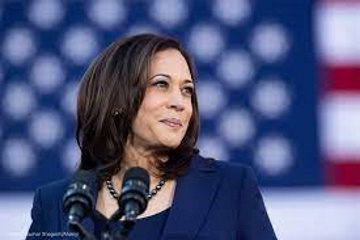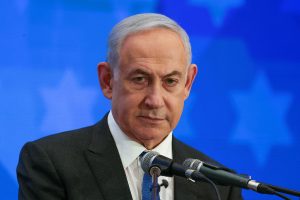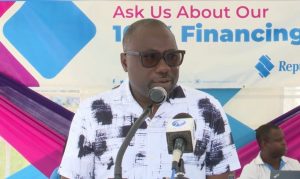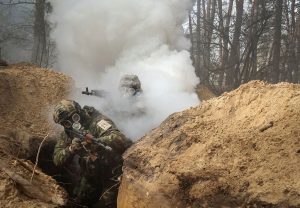CMC – In pursuit of shared prosperity and security, and in recognition of the close ties between the United States and Caribbean nations, Vice President Kamala Harris will announce today, Thursday, June 8, new initiatives to strengthen the US-Caribbean partnership.
In a statement, the White House said that Harris, whose father is a retired Jamaican economist Dr. Donald Harris, will announce new initiatives that address security and firearms trafficking; the need for an enhanced diplomatic presence in the eastern Caribbean; the crisis in Haiti; and the US–Caribbean Partnership to Address the Climate Crisis 2030 (PACC 2030).
Thursday’s announcements include more than US$100 million in new assistance for the region.
Harris and Bahamas Prime Minister Philip Davis will host the US-Caribbean Leaders Meeting in Nassau, The Bahamas.
“This meeting will build on the Vice President’s previous meetings with Caribbean leaders in April 2022, at the June 2022 Summit of the Americas in Los Angeles, and in September 2022,” the statement said.
“The Vice President’s trip delivers on the Biden-Harris Administration’s commitment to advance cooperation with the Caribbean,” it added.
The White House said the Biden-Harris Administration is “committed to disrupting firearms trafficking in the Caribbean by interdicting illicit shipments of firearms and ammunition, and by holding offenders accountable and bringing them to justice.”
To bolster these efforts, the White House said the US Department of Justice (DOJ) will name a Coordinator for Caribbean Firearms Prosecutions who will be an experienced DOJ prosecutor.
“The creation of this position will elevate this critical issue and help implement the provisions of the Bipartisan Safer Communities Act, which included new federal criminal provisions on firearms trafficking and straw purchases,” the White House said.
It said the US Department of State is supporting the recently established regional Crime Gun Intelligence Unit (CGIU) in Trinidad and Tobago, which facilitates collaboration and cooperation among regional and international law enforcement agencies including the Caribbean Community Implementation Agency for Crime and Security; US agencies including the Bureau of Alcohol, Tobacco, Firearms and Explosives, Homeland Security Investigations (HSI), Customs and Border Protection, the Bureau of Industry and Security); and INTERPOL.
“The CGIU will address critical firearms investigation training needs in the Caribbean and help our Caribbean partner nations solve gun-related crime cases, deterring gun crimes in the region and bringing criminals to justice,” the White House said. “The CGIU will provide training on real-time collection, management, and analysis of crime gun intelligence and encourage information sharing with international law enforcement partners.”
Tehe US Department of State will support HSI collaboration with the Haitian National Police (HNP) to develop a Transnational Criminal Investigative Unit (TCIU) to facilitate investigations and prosecution of transnational crimes, including those with a US nexus.
“The TCIU will focus on crimes including firearms and ammunition smuggling, human trafficking and transnational gang activity,” the White House said.
It said the Department of State, through the continuation of a regional forensics accreditation project, will help bring Caribbean forensic capabilities up to international standards with a goal of achieving International Organization for Standardization accreditation.
The statement added that the United States will help establish a regional forensics Center of Excellence in St. Lucia in addition to continued support to forensic laboratories in The Bahamas and the Dominican Republic.
“The project will support the collection of timely, reliable, and admissible forensic evidence to support criminal investigations and prosecutions, increase efficiency, and help lower case backlogs,” the White House said.
It said the Department of State will also continue to increase the capacity of Caribbean law enforcement partners by strengthening organizational and administrative structures of national police forces, improving internal affairs and criminal investigation capabilities, and upgrading police education and training.
“These efforts will better equip law enforcement partners to respond to crime perpetrated using illegal firearms and will support increased community involvement in public safety planning,” it said.
In addition, the US Department of State, alongside the United Kingdom, will leverage the presence of a senior criminal justice advisor in the Caribbean to mentor local prosecutors and judges, improve the criminal justice experience of victims and witnesses, and enhance public legal education.
“This program will build more efficient criminal justice systems to achieve more effective prosecutions of firearms-related crimes throughout the Eastern Caribbean,” the White House said.
It said the Biden-Harris Administration has begun the process to establish two new embassies and an additional diplomatic support presence in the eastern Caribbean.
“This effort, pursued in consultation with the United States Congress and the countries of the region, recognizes that deepening our relationship with Caribbean nations requires regular exchange between our governments at all levels, and is in response to long-standing requests from our Caribbean partners,” the White House said. “An expanded diplomatic footprint in the Caribbean will help strengthen people-to-people ties between our nations.”
The United States, through the US Agency for International Development (USAID), is providing an additional US$53.7 million for the people of Haiti in response to the country’s humanitarian crisis.
The White House said this new funding will provide vulnerable Haitians with urgently needed support, including vital food assistance and other humanitarian assistance, as 4.9 million people face acute food insecurity.
In addition, the funds will support care for survivors of gender-based violence and will provide access to safe drinking water and health care.
USAID also intends to provide an additional US$10.5 million in development assistance to enhance resilience and productivity in Haiti’s agriculture and livestock sector, the White House said.
In June 2022, the Vice President and Caribbean leaders launched PACC 2030, the U.S Government’s flagship partnership with Caribbean partners to advance climate adaptation, build resilience and expand clean energy access across the region.
To advance PACC 2030, the White House said Harris is announcing on Thursday the Caribbean Climate Investment Program (CCIP).
With an initial US$20 million investment, subject to the availability of funds, the White House said USAID will provide financial, technical assistance, and business development services through CCIP to enterprises deploying technologies in renewable energy, energy efficiency, and climate adaptation by mobilizing private finance and private sector-led actions.
CCIP recently announced a funding opportunity, which is offering matching grants of up to US$1 million to catalyze climate-related businesses in the Caribbean.
USAID will provide nearly US$15 million to support disaster risk reduction, emergency response capacity strengthening, and resilience building across the Caribbean.
“This funding will build operational capacity in disaster response and preparedness, including emergency logistics for regional and national government entities and community-based first responders,” it said.
Working with the US Congress, and in response to partner demand, the White House said the US Department of Defense is moving forward with a US$5 million Operationalize Climate Resilience Initiative that will help partners in the Western Hemisphere, including in the Caribbean, address the challenges at the nexus of climate change and national security.
The programme will provide training in how to plan against, prepare for, and respond to climate contingencies and will fund additional bilateral and multilateral research on climate security in the Western Hemisphere.
The Department of State is also partnering with the US Department of Commerce to launch a clean energy investment and procurement training series for Caribbean energy regulators known as Power Hours.
It is also a partnership with the Caribbean Electric Utility Services Corporation to launch a Resilient Energy Regulation Workshop Series.
The White House said the training will build technical and institutional capacity among Caribbean electric utilities and regulators to prepare for a cleaner power system and more electric vehicles.
USAID will also provide US$1.5 million to the Caribbean Community Climate Change Center to increase the flow of international climate funding and help strengthen key data tools for decision-making to support the region’s response to climate change.
Assistant Secretary of State for Western Hemisphere Affairs Brian A. Nichols will accompany Harris on her trip to the region “to discuss climate resilience, energy and food security, and economic prosperity with Caribbean leaders.”
This trip also celebrates the 50th anniversary of bilateral relations between the United States and The Bahamas.






More Stories
Israel closing Al Jazeera network
Government moving to make land ownership easier
Puerto Rico: 62 gang members charged